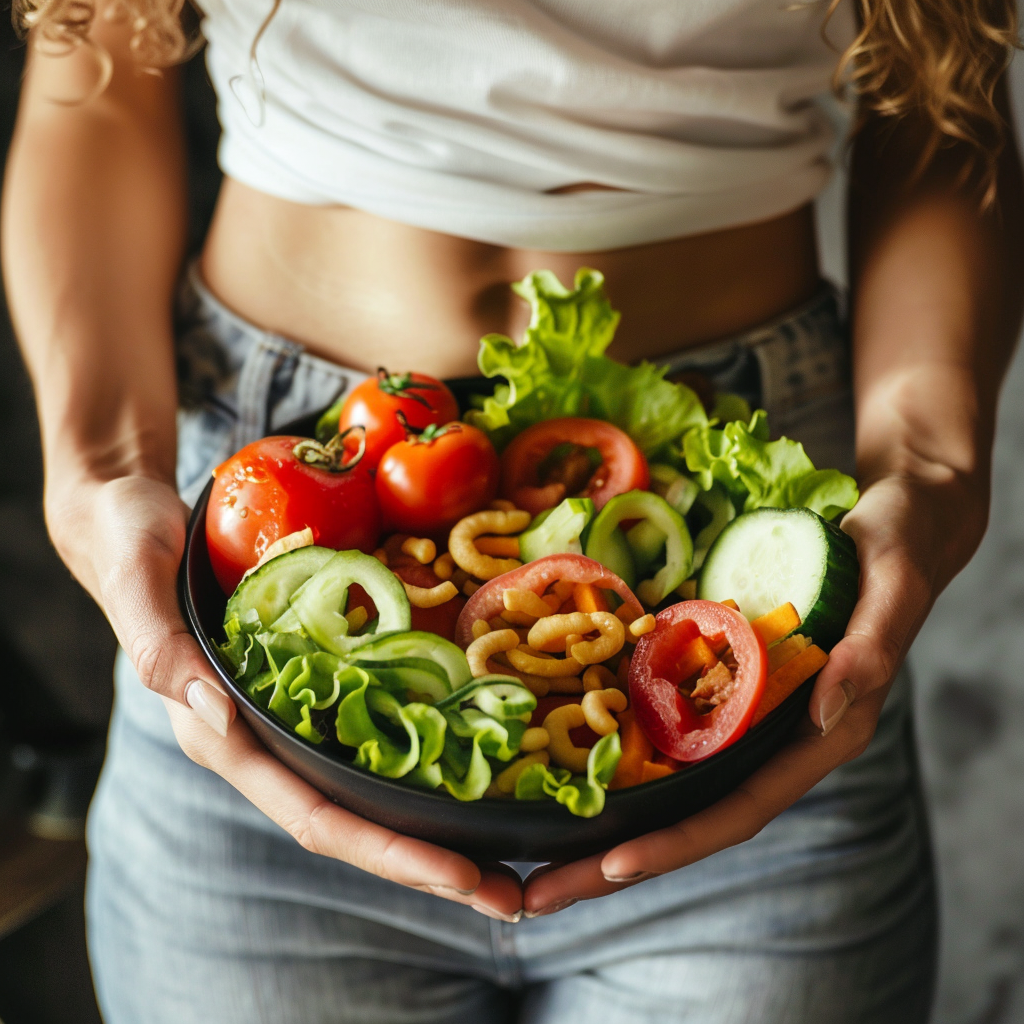
Foods That Promote Healthy Digestion
Maintaining a healthy digestive system is crucial for overall well-being. A well-functioning digestive tract ensures that your body absorbs the essential nutrients it needs while eliminating waste efficiently. If you’re looking to support your digestive health, incorporating certain foods into your diet can make a significant difference. Let’s explore some of the best foods that promote healthy digestion.
1. Fiber-Rich Foods
Fiber is a key component of a healthy diet, playing a vital role in digestion. It helps keep your digestive system running smoothly by adding bulk to your stool and promoting regular bowel movements.
-
Whole Grains: Foods like oats, brown rice, and whole wheat bread are excellent sources of fiber. They help prevent constipation and maintain a healthy gut.
-
Fruits and Vegetables: Apples, berries, carrots, and broccoli are packed with dietary fiber. Eating a variety of fruits and vegetables ensures you get both soluble and insoluble fiber, which work together to improve digestion.
-
Legumes: Beans, lentils, and chickpeas are high in fiber and beneficial for digestive health. They also provide protein and other essential nutrients.

2. Probiotic Foods
Probiotics are live bacteria that are good for your digestive system. They help maintain a healthy balance of gut flora, which is essential for proper digestion.
-
Yogurt: One of the most well-known probiotic foods, yogurt contains live cultures that aid in digestion. Choose plain, unsweetened yogurt for the best benefits.
-
Kefir: This fermented milk drink is rich in probiotics and can help improve gut health and digestion.
-
Sauerkraut and Kimchi: These fermented vegetables are not only tasty but also packed with probiotics that support a healthy digestive system.

3. Prebiotic Foods
Prebiotics are non-digestible fibers that feed the good bacteria in your gut. They play a crucial role in maintaining a healthy gut microbiome.
-
Garlic and Onions: Both are rich in inulin, a type of prebiotic fiber that promotes the growth of beneficial bacteria.
-
Bananas: Bananas are a great source of dietary fiber and also contain prebiotics that help feed gut bacteria.
-
Asparagus: This vegetable is high in inulin and supports digestive health by promoting the growth of good bacteria.

4. Hydrating Foods
Staying hydrated is essential for digestion. Water helps break down food so that your body can absorb nutrients. Including hydrating foods in your diet can support this process.
-
Cucumbers: With a high water content, cucumbers help keep you hydrated and aid in digestion.
-
Watermelon: This refreshing fruit is mostly water and can help maintain hydration, which is vital for digestive health.
-
Broth-Based Soups: These soups provide both hydration and essential nutrients, making them easy to digest.

5. Healthy Fats
While excessive fat can slow down digestion, healthy fats are essential for nutrient absorption and maintaining gut health.
-
Avocados: Rich in healthy monounsaturated fats, avocados also contain fiber that aids digestion.
-
Nuts and Seeds: Almonds, chia seeds, and flaxseeds provide healthy fats and fiber, promoting digestive health.
-
Olive Oil: This healthy fat can help lubricate the digestive tract, making it easier for food to pass through.

Tips for Maintaining Digestive Health
- Eat Regular Meals: Consistency in meal times helps regulate your digestive system.
- Chew Thoroughly: Properly chewing your food aids in the digestive process.
- Stay Active: Regular physical activity promotes healthy digestion.
- Manage Stress: High stress levels can negatively impact digestion, so incorporating stress-relief techniques is beneficial.

Incorporating these foods into your daily diet can help support and maintain a healthy digestive system. Remember, a balanced diet rich in fiber, probiotics, prebiotics, hydrating foods, and healthy fats is key to promoting optimal digestion and overall health.
For more detailed information on foods that promote healthy digestion, you can visit the NIH National Institute of Diabetes and Digestive and Kidney Diseases and the NIH News in Health.
FAQ's
Q1: Why is fiber important for digestive health? A1: Fiber is crucial for digestive health because it adds bulk to your stool and promotes regular bowel movements. Foods like oats, brown rice, whole wheat bread, apples, berries, carrots, broccoli, beans, lentils, and chickpeas are excellent sources of dietary fiber.
Q2: How do probiotics support digestion?
Probiotics are live bacteria that help maintain a healthy balance of gut flora, essential for proper digestion. Probiotic-rich foods like yogurt, kefir, sauerkraut, and kimchi aid in digestion by introducing beneficial bacteria into your digestive system.
Q3: What are prebiotic foods and how do they benefit the gut?
Prebiotic foods are non-digestible fibers that feed the good bacteria in your gut, supporting a healthy gut microbiome. Garlic, onions, bananas, and asparagus are rich in prebiotics like inulin, which promotes the growth of beneficial bacteria.
Q4: Why is staying hydrated important for digestion?
Hydration is vital for digestion as water helps break down food for nutrient absorption. Hydrating foods like cucumbers, watermelon, and broth-based soups help maintain hydration, supporting the digestive process.
Q5: What role do healthy fats play in digestion?
Healthy fats are essential for nutrient absorption and maintaining gut health. Foods like avocados, almonds, chia seeds, flaxseeds, and olive oil provide healthy fats that aid digestion by lubricating the digestive tract and supporting nutrient absorption.

Leave a comment